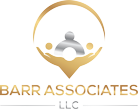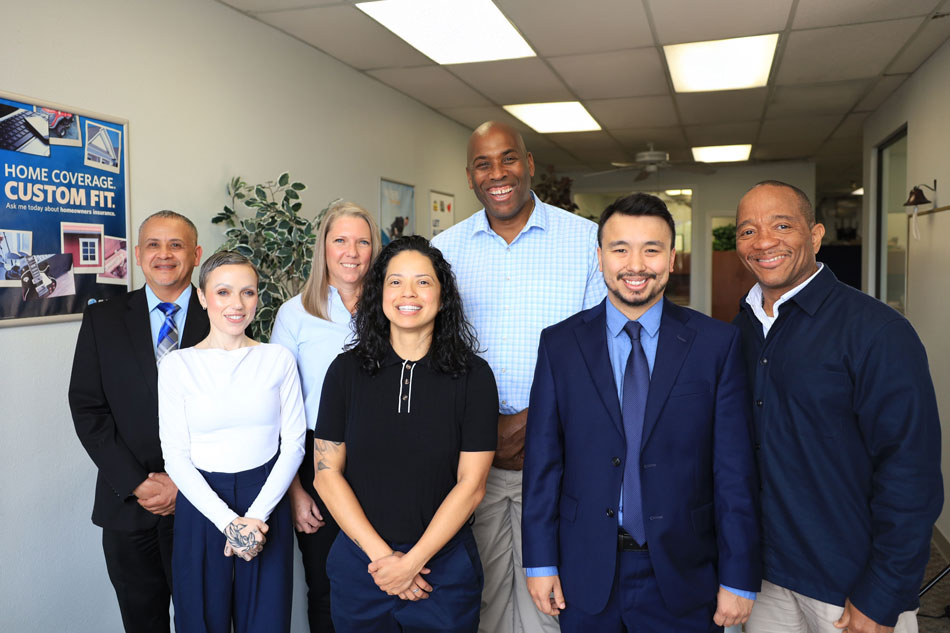Find out how home & auto insurance works to protect your family and your vehicle on the road.
Home Insurance
Get the insurance your home needs.
Your home is the center of your life. It’s also your biggest investment. That’s where home insurance comes in, covering the unique risks you face. We’ll help you find a policy that protects you from the small and large risks related to owning a home. Because it’s more than just a house, it’s your home.
Every home is different, your coverage should be too.
Finding coverage for your unique needs may seem overwhelming. There’s no one-size-fits-all solution, but there are many coverage options that may work for you. Home insurance policies cover a range of options tailored to fit the needs of your home and lifestyle. When reviewing your options, consider the following coverages:
Additional Living Expense/Loss of Use
- Collectible Cars
- Excess Liability Coverage
- Fire
- Flood Coverage
- Jewelry, Fine Arts and Collectibles
- Medical Expenses
- Miscellaneous Coverage
- Off-Premises Theft
- Personal Injury
- Personal Liability
- Personal Property/Contents
- Property Damage
- Secondary Home
- Umbrella
- Water Back-Up
- Wine Collection
Is your home protected?
Does your current homeowners insurance cover your needs? Chances are, it doesn’t. We’ll work with you to determine the risks your home faces and help you find customized coverage to fit your specific needs. Because whether you live in a one-story house or a mansion, it’s the place you call home. And your home deserves to be covered with insurance that’s more than the bare minimum.
Are you looking for home insurance to protect your biggest asset? Contact us to discuss homeowners coverage options for your needs.
Many different factors can influence how much you pay for homeowners insurance. Some of the most important include:
- Your home’s age
- Your home’s condition
- Where you live
- Your claims history
- The level of coverage you purchase
- The size of your deductible
- Your home’s replacement cost
That being said, recent data from Matic found that the average cost of homeowners insurance in the United States was about $1,779 per year.
The good news? Most carriers offer a variety of homeowners insurance discounts that can help you lower your rates.
Unlike car insurance, homeowners insurance is not required by law.
That being said, virtually all mortgage lenders will require hazard insurance as a condition of your loan. Failing to purchase a homeowners insurance policy to include hazard insurance, will most likely result in your mortgage application being denied, and allowing coverage to lapse once you do have a mortgage can result in a number of negative consequences, including potential default.
But even if you own your home outright and are under no obligation to purchase insurance, doing so is likely a good idea. If you’re like most people, your house is your single most valuable asset. Homeowners insurance offers you significant peace of mind that comes from knowing that if a covered event caused damage to your home, you won’t need to pay out of pocket for major repairs.
While individual policies will vary, homeowners insurance typically doesn’t cover damage or destruction caused by:
- Flooding and related damage
- Water or sewage backup
- Termite damage
- Rodent and pest damage
- Earthquakes
- Acts of war
Additionally, the personal property coverage offered by most homeowners insurance policies usually won’t be enough to fully cover particularly valuable items like jewelry or collectibles. If you have items whose value exceeds your coverage limits, you can often add more coverage.
In many cases, you can purchase additional coverage in the form of riders which may address some of the exclusions listed above. Flood insurance and earthquake insurance, for example, are very common riders.
With inflation and prices rising all around us we want to make sure that we are getting a competitive price on our HomeOwners insurance one way to make sure you are receiving fair rates is to stay up to date with your property maintenance. Homeowners Insurance carriers hire inspectors to inspect your property things like the age of your roof, electrical, plumbing, and hvac systems make a big impact on your insurance premiums.
ask your trusted insurance broker to make sure that you are taking advantage of all policy discounts available to you. If you for example have installed a new security system or upgrade your major electrical or plumbing system make sure that your insurance broker knows.
Be thoughtful when reporting claims; not every claim is worth reporting. In some cases if you have an event happen within your home that you are thinking about reporting as a claim keep your deductible in mind. If for example the estimated damage caused to fix the problem is very close to what you would have to pay in the amount of your deductible it may be best to just take care of this out of pocket because every claim that is filed is tracked and is placed on your insurance record and may impact your future premiums.
HomeOwners Insurance is typically coverage reserved for your primary residence that is titled in your personal name. If the property that will be covered is a vacation home or secondary property that you do not use as a primary residence other property insurance may be necessary. A fire dwelling policy is a different type of HomeOwners insurance policy that landlords use for rental properties that they own. Vacation homes may qualify for a secondary residence HomeOwners insurance policy usually the insurance carrier in order to extend this coverage will need to also insure the primary residence. If your home is going through major renovations that may occur over the course of several months a Builder’s risk policy may be required instead of a traditional HomeOwners policy.
HomeOwners Insurance is typically coverage reserved for your primary residence that is titled in your personal name. If the property that will be covered is a vacation home or secondary property that you do not use as a primary residence other property insurance may be necessary. A fire dwelling policy is a different type of HomeOwners insurance policy that landlords use for rental properties that they own. Vacation homes may qualify for a secondary residence HomeOwners insurance policy usually the insurance carrier in order to extend this coverage will need to also insure the primary residence. If your home is going through major renovations that may occur over the course of several months a Builder’s risk policy may be required instead of a traditional HomeOwners policy.
What, exactly, your homeowners insurance policy covers will depend on the type of policy that you hold, as well as the specific terms of that policy. That being said, most standard policies include four basic types of coverage:
- Structural Coverage: This coverage protects the physical structure of your primary dwelling and other structures on your property.
- Personal Property Coverage: This coverage is for items in your home that become damaged or destroyed by a covered event.
- Liability Coverage: This coverage protects you in the event you are deemed legally liable for an accident that takes place on your property which injures another person or damages their property. It commonly covers medical bills and legal fees.
- Additional Living Expenses: This coverage helps to pay for your living expenses if you are unable to live in your home for a period of time due to damage caused by a covered event.
Additionally, it may be possible to purchase riders or amendments that add other forms of coverage to your policy.
Auto Insurance
Get coverage to protect the vehicle you rely on.
Your car or truck is often your biggest asset aside from your home—we’ll help you get the insurance coverage you need at a price you can afford. Auto insurance helps to protect against potentially crippling financial losses and the sheer inconvenience of being without transportation.
What is the minimum coverage required?
Not all car insurance is created equal. Some auto insurance policies simply meet legal requirements. This means your insurance may cover the damage you cause to other cars in collisions. However, auto insurance in some no-fault regions may also cover your own car or truck. Additionally, the law usually states that policies must cover some medical bills that result from a car crash.
Protect your vehicle with auto insurance add-ons.
Other auto insurance policies go further and protect your car or truck if it is stolen, damaged or destroyed by fire, or damaged in a car accident that doesn’t involve any other vehicles. You may also get policies that protect your car if it is damaged by an uninsured driver.
Are you looking for auto insurance to cover your car or truck? Contact us to discuss coverage options.
Comprehensive coverage is available for vehicles that are paid off that have no lienholder. This coverage extends to vehicles that may not need full coverage but for insured that want coverage for things such as Fire, Theft,Vandalism, and collision with an Animal. comprehensive coverage can be a happy medium between baseline liability coverage and having full coverage. Comprehensive coverage oftentimes isn’t a lot more expensive than Liability and provides an extra level of comfort and security for drivers.
Car insurance policies typically offer several types of coverage, each designed to protect you in different scenarios:
- Liability Coverage: This is mandatory in most states and covers damages to other people’s property and injuries to others if you are at fault in an accident.
- Collision Coverage: This covers damage to your vehicle resulting from a collision with another car or object, regardless of who is at fault.
- Comprehensive Coverage: This protects against non-collision-related incidents such as theft, vandalism, or natural disasters.
- Personal Injury Protection (PIP): This covers medical expenses and, in some cases, lost wages and other damages.
- Uninsured/Underinsured Motorist Coverage: This provides protection if you are involved in an accident with a driver who lacks adequate insurance.
it is essential to follow these steps:
- Ensure Safety: Check for injuries and move to a safe location if possible.
- Contact Authorities: Call the police to report the accident, even if it seems minor.
- Exchange Information: Collect contact and insurance information from all parties involved.
- Document the Scene: Take photos of the accident scene, vehicle damage, and any relevant road conditions.
- Notify Your Insurer: Report the accident to your insurance company as soon as possible
Insurance premiums are calculated based on several factors, including:
- Driving Record: A clean driving record can lead to lower premiums, while accidents or violations may increase costs.
- Vehicle Type: The make, model, and year of your car can affect your premium, with high-performance or luxury vehicles often costing more to insure.
- Location: Urban areas with higher rates of accidents or theft may result in higher premiums compared to rural areas. Insurance carriers also look at claim activity in specific zip codes to help determine what the rates will be in that area.
- Credit Score: In some states, insurers use credit scores to help determine premiums, with higher scores potentially leading to lower rates.
- Coverage Amounts: The level of coverage you choose will directly impact your premium, with more comprehensive coverage typically costing more.
Yes you can obtain Car insurance even if you do not have a United States issued driver’s license someone with a foreign license can obtain car insurance in most cases with a surcharge from certain insurance carriers. You should work with an experienced insurance broker such as Barr Associates Insurance so that many carriers can be vetted for coverage.
Requiring state filings are not the end of the world you may be required to have filings with your car insurance if your license has previously been suspended you may need an Fr-44 or certificate of financial responsibility to reinstate your driving privileges after a DUI or similar serious traffic offenses in states like Florida or Virginia.
In states like Maryland you may be required to have an Fr-19 filed whenever there is a circumstance where a lapse of insurance may have occurred this can be prompted if you switch insurance carriers mid term or if you have a lapse of insurance for non payment or a cancelled policy.
Lowering your car insurance is a common question one way to accomplish this is to bundle your Auto Insurance with renters or Home Owners insurance whenever possible. Bundle discounts can be as high as 30 percent when you have multiple policies in force with the same insurance provider. Contact your knowledgeable agent at barr associates to ask about bundling policies.
Checking your motor vehicle record and disputing any inaccurate information is another way to potentially lower your Car insurance rates. The motor vehicle agencies do their best to make sure accurate information is being reported but sometimes they make mistakes too if you discover any inaccurate information that you can successfully dispute this can result in the reduction of your premium.
Do you have any children that are currently in college? one way to lower premiums especially for young drivers is to inquire about a Good student discount if a young driver is in a qualified university and can supply a transcript showing that they have outstanding grades a Good student discount may be on the table for you.



